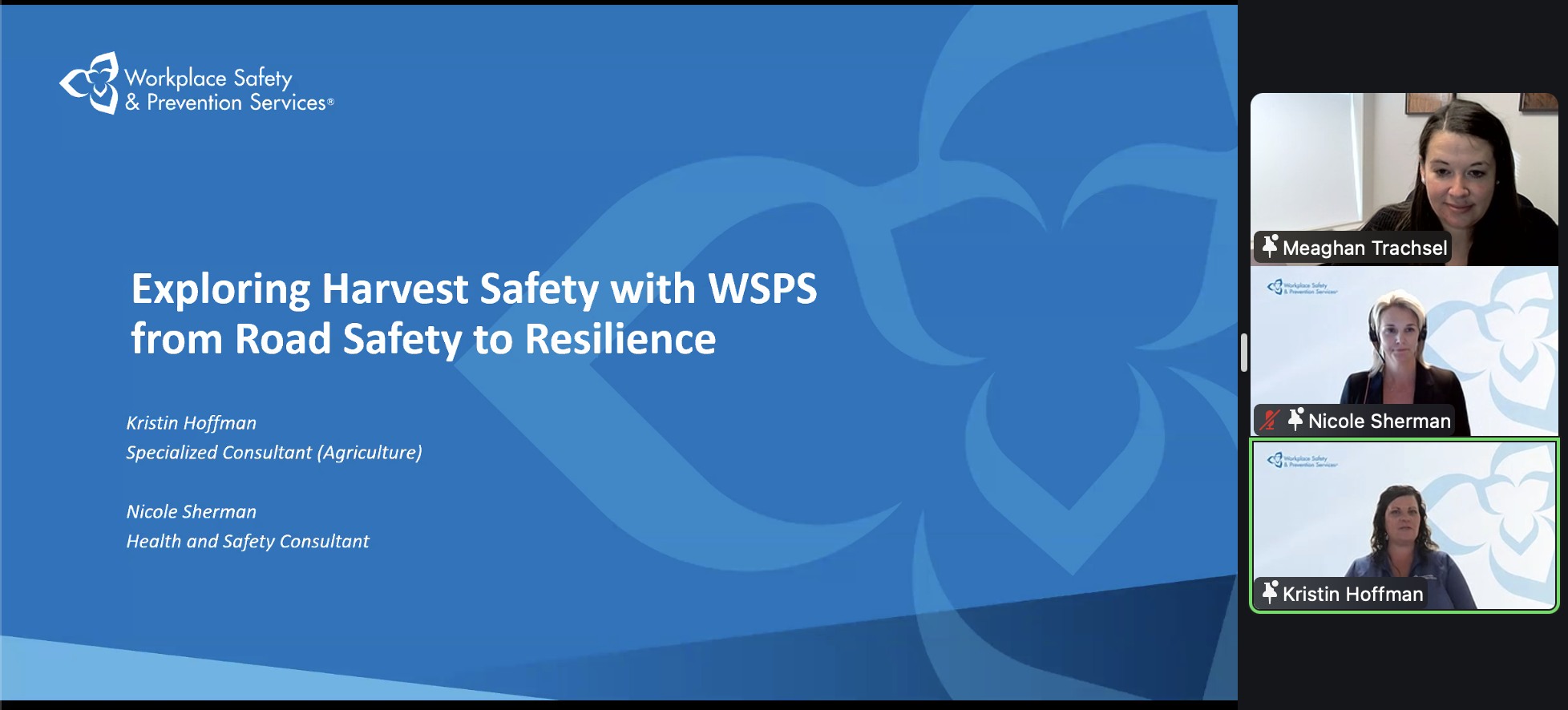Oct. 5 — It was a day of choppy, two-sided trading as financial and energy markets started the day in a downward fashion but as the day went on they were able to rebound and close with small gains. Grains followed pretty much the same pattern, with the exception of beans, which still ended up posting small losses on the day.
Grain markets are expected to remain sluggish this week as another U.S. Department of Agriculture production report is due on Friday and production numbers are expected to grow yet again.
Read Also

Tips for staying safe this harvest season
Kristin Hoffman of WSPS explains measures for increased farm safety around harvest season
The U.S. dollar fell three-10ths of a cent today. The Canadian dollar rose 1.15 cents today, closing at US93.5 cents.
The Dow Jones December quote finished up 111 points, closing at 9,546 today.
Crude oil closed up 46 cents a barrel at US$70.41.
Corn closed up six to eight cents a bushel today, while beans closed down one to 4.4 cents a bushel.
Wheat futures closed mixed, up three to down 1.4 cents a bushel today. Minneapolis December wheat closed up 2.2 cents a bushel for the day.
Canola closed down 50 cents to $3.60 per tonne today.
October Western barley was unchanged, closing at $106.60 per tonne. November futures closed unchanged as well, at $149.60 per tonne.
More reports out of Europe of Canadian flax shipments contaminated with genetically modified (GM) flax are surfacing, which will not help the resumption of flax sales into Europe any time soon.
European laboratories have said the GM material is a variety known as Triffid, developed in Canada in the 1990s and approved in Canada and the U.S. for feed and food. The Canadian government deregistered Triffid in 2001. The Canadian Grain Commission is currently testing all flax shipments and flax samples from grain handlers to try to determine the source of this GM contamination.
This is seen as a very serious issue when it comes to protecting the reliability of the Canadian grain quality assurance program for exporting grains.
An incident like this in a small market such as flax could virtually destroy export opportunities for Canadian flax for years to come, unless the source is found and eliminated so as to ensure world buyers there is no further risk of GM contamination in the future.
At the end of the day the responsibility lies with everyone, from the grower to the export shipper, to ensure the quality of grains shipped from Canada to maintain our shrinking world markets. Sluffing off and blending of unlicensed varieties of any grains into the handling system can and will have devastating effects for everyone involved.
We need to make sure we keep the highest level of integrity in our grain quality and handling system if we want to keep or ever grow our share of the ultra-competitive world grain export markets.
That’s all for today. — Brian
— Brian Wittal has spent over 27 years in the grain industry, including as an elevator manager and producer services representative for Alberta Wheat Pool, a regional sales manager for AgPro Grain and farm business representative for the Canadian Wheat Board, where he helped design some of the new pricing programs. He also operates his own company providing marketing and risk management advice for Prairie grain producers. Brian’s daily commentaries focus on how domestic and world market conditions affect you directly as grain producers.
Brian welcomes feedback and information on market conditions in your area, such as current offering prices, basis levels, trucking premiums and special crops contracts. Contact Brian today.











